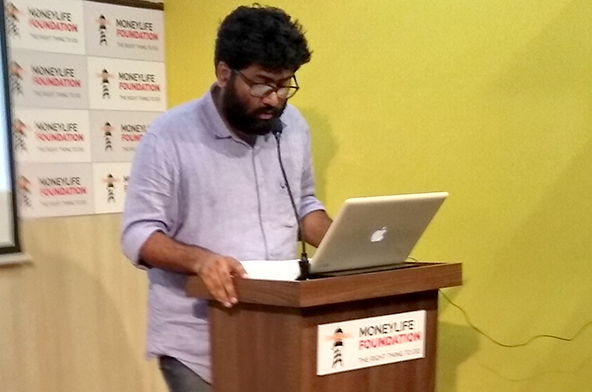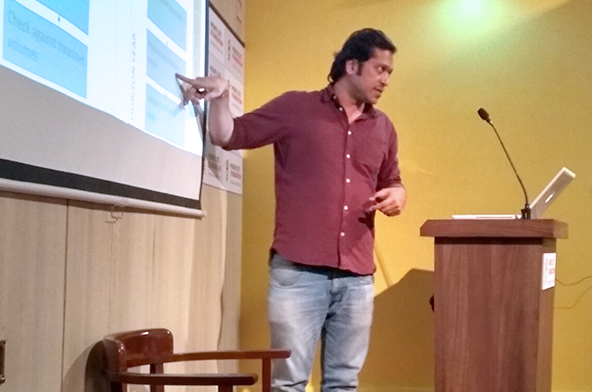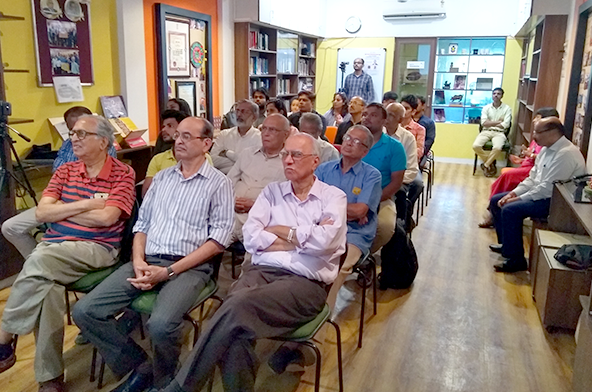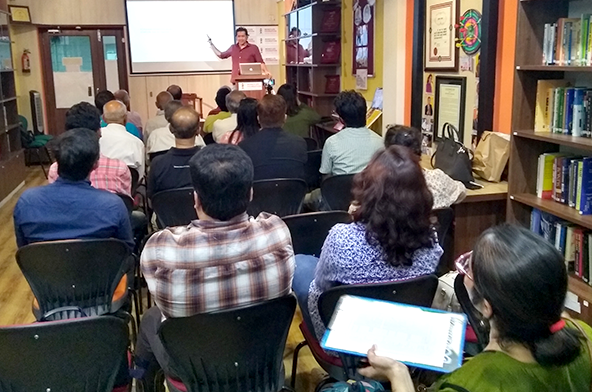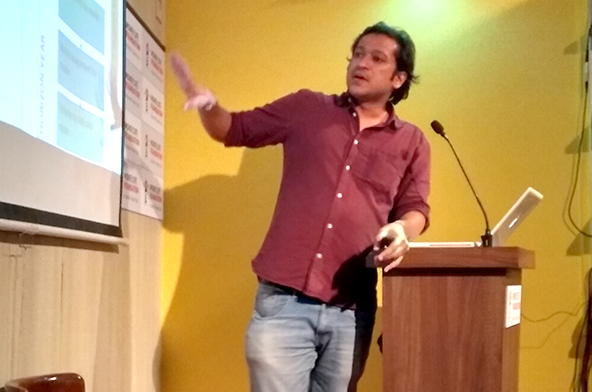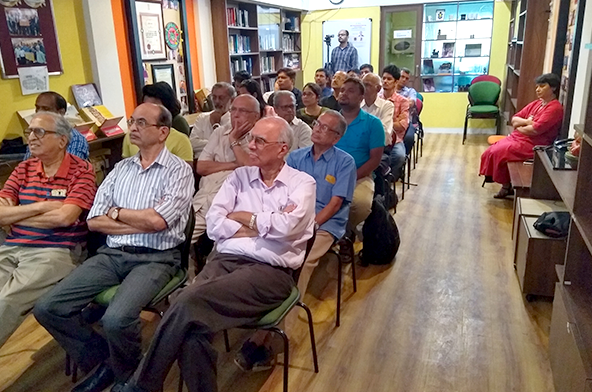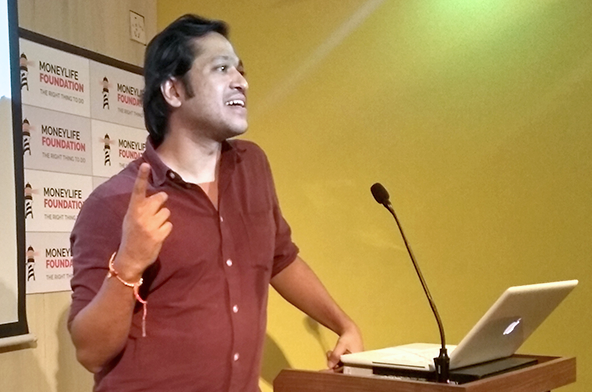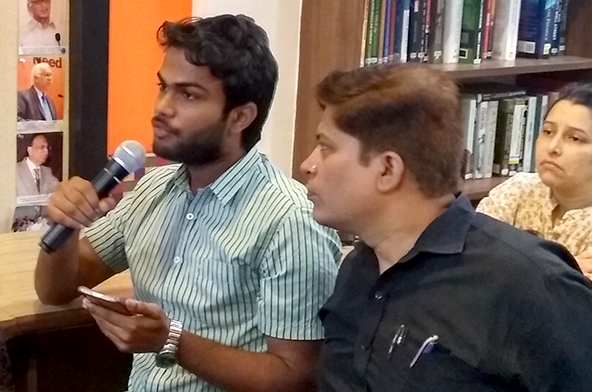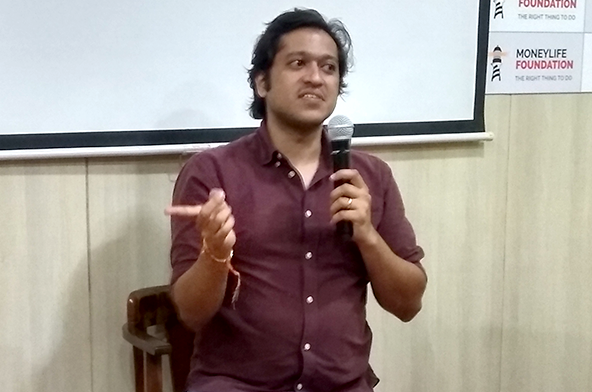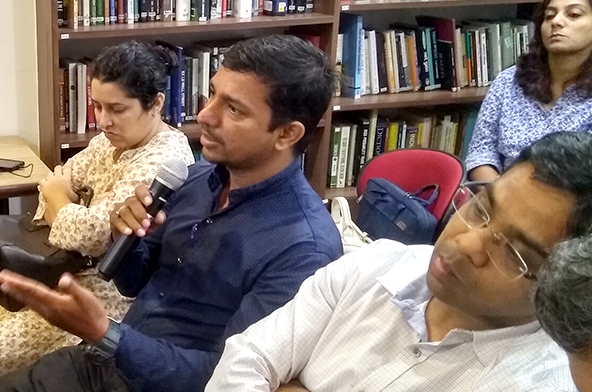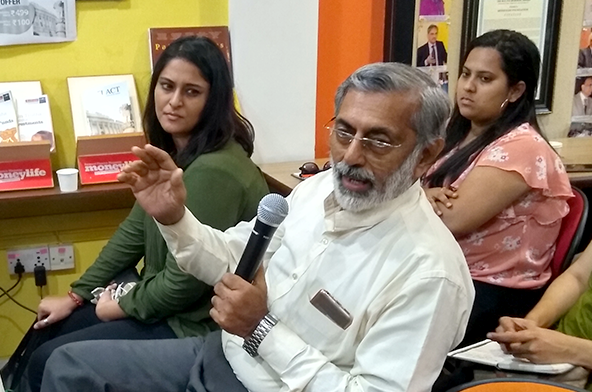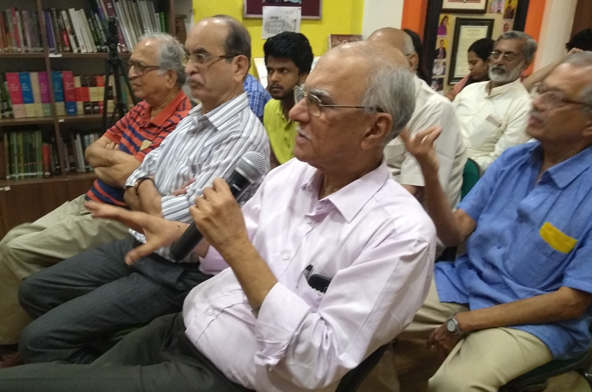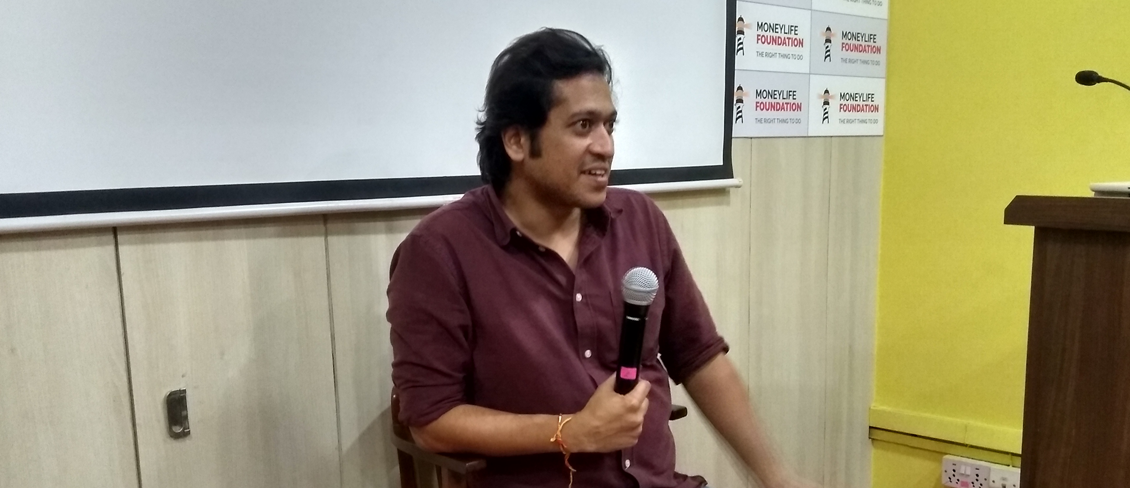
A recent statistical report had revealed that Mumbaikars face the most number of traffic jams not only in the country but across the world. As per the GPS-based study on traffic congestion in over 400 cities of the world, Mumbai has earned the dubious epithet of the 'Most Traffic Congested City' in the world. To better understand this problem and perhaps find a solution to Mumbai's transportation and infrastructure problems, Moneylife Foundation had invited Dhawal Ashar from the World Resources Institute (WRI) India for a talk.
In his presentation, Dhawal pointed out that traditionally the traffic congestion problem has always been addressed by keeping vehicular transport at the forefront while pedestrians are completely ignored or tacked on as an afterthought. He said, "Learning from other modern cities throughout the world, we should realise that designing and implementing urban road infrastructure with pedestrians as the primary concern is actually beneficial for both vehicular transport as well as pedestrians."
To elaborate more on his perspective, Dhawal referred to the Comprehensive Mobility Plan, published in 2014 by the Municipal Corporation of Greater Mumbai (MCGM), saying that over 50 percent of the trips in Mumbai are walk trips. The report also says that private car trip share is still less than 6% and motorcycles less than 10%. "The high numbers of pedestrians in Mumbai do not necessarily translate into high quality walking spaces in the city. If anything, everyday pedestrians are squeezed out of spaces to walk. In many places, footpaths have made way for parking and in some cases to increase carriageway," explained Dhawal.
In the last two decades, Mumbai has witnessed an exponential rise in vehicles from 5 lakh in the early 2000's to 35 lakh vehicles right now. Compare this statistic with that of Mumbai's growing infrastructure and we see that the city has built over 50 flyovers including the iconic Sea-link, Eastern Freeway, JVLR, SCLR, Mumbai Metro 1 and Mono rail. Dhawal explained, that "in doing so, the city has spent over Rs15,000 crore, but the result of this investment and supply has only created more demand for automobiles. While Mumbai decided to go this route, there were several new trends emerging in other countries that focused on moving people".
"Good pedestrian infrastructure is not just about the quality or quantity of footpaths but depends on a host of other factors; such as: continuity and permeability of pedestrian networks, optimal level of shade, trees and lighting, adequate public amenities for pedestrians, universal accessibility features, and well-designed urban signages and public spaces" said Dhawal.
Throughout the world, street design has changed as a science and generally moved away from highway-centric designs to designing for pedestrians. Dhawal presented examples of several urban cities around the world such as New York who lead the way through design manuals that focus on an equitable distribution of road space.
"The city of London has a program that promotes enhanced accessibility in growth areas and incentivises private sector participation in building and maintaining these streets," added Dhawal and explained that this ensures safe and efficient movement of people, goods and services and unlocks the development potential in these neighborhoods. Dhawal further expanded on this idea that "Cities are beginning to realise the business potential of building 'complete streets', not only building streets for universal access."
Dhawal ended his presentation by saying, "Mumbai is at a critical juncture today. If the last two decades with the construction of 60+ flyovers, the Bandra-Worli Sea-Link and the Eastern Freeway has any learnings to offer, it is that we cannot build our way out of congestion". But this does not necessarily mean there is no solution to our problem, as Dhawal says, "The crisis of today presents also an opportunity for tomorrow. Mumbai needs to define a 'new normal', one that suggests a paradigm shift from 'roads for cars' to streets for people'."


